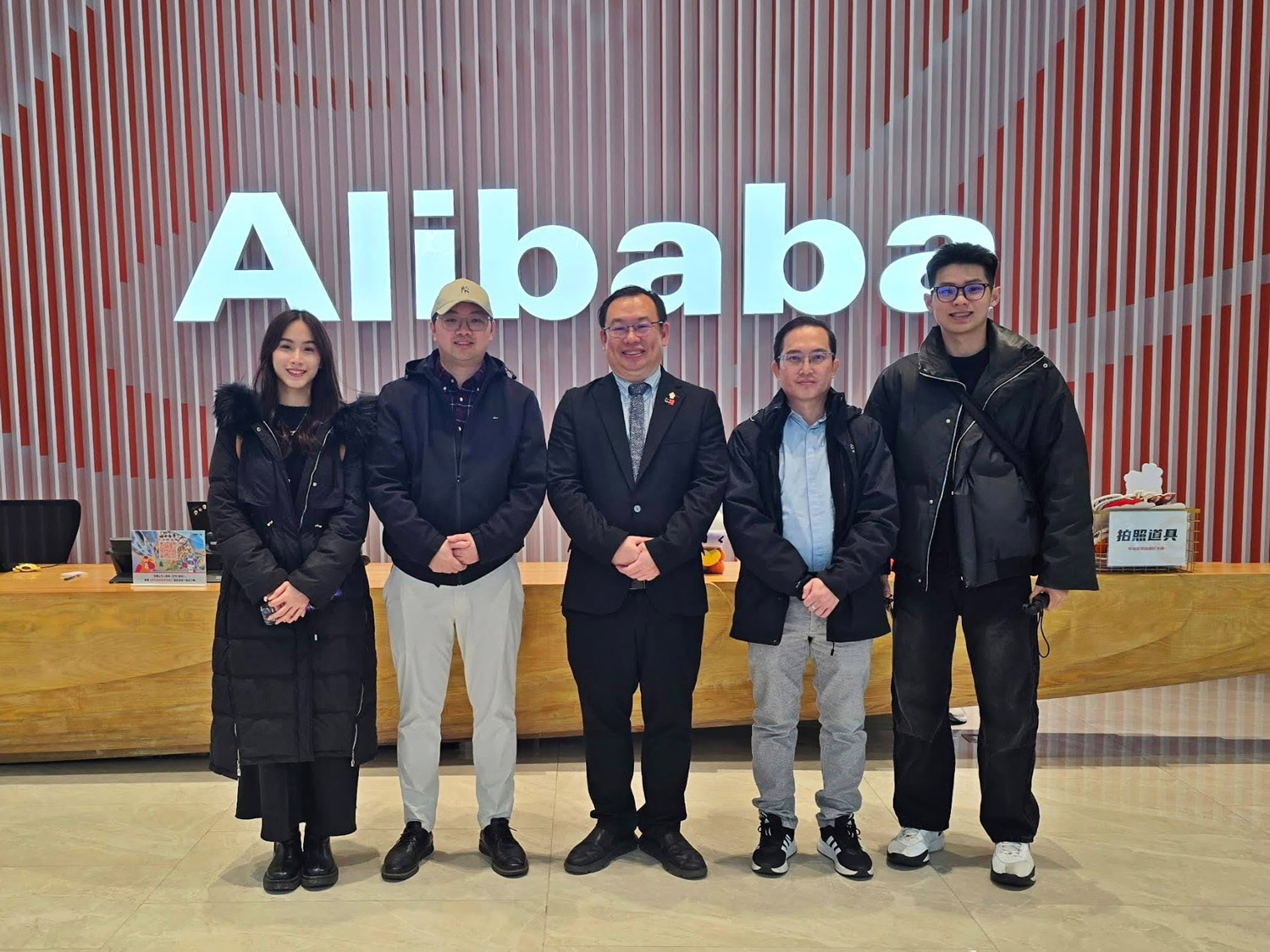KUCHING – As part of an ongoing effort to strengthen global academic and industry collaborations, Swinburne University of Technology Sarawak Campus and Zhejiang Yuexiu University (ZYU) continue to pioneer innovative initiatives in Work Integrated Learning (WIL) and entrepreneurship.
These initiatives not only provide students with invaluable hands-on experiences but also foster a dynamic ecosystem that bridges education, industry and international markets. Through structured industry attachments, entrepreneurial competitions and digital trade collaborations, students from both institutions are gaining practical exposure and insights that prepare them to thrive in an increasingly interconnected global economy.
Recognising the need for industry-relevant education, Swinburne Sarawak has expanded its WIL initiative to provide students with international placements in leading companies.
Recently, a student and an alumnus from Swinburne Sarawak’s Faculty of Business, Design and Arts embarked on an immersive two-week attachment from 24 February to 7 March 2025 at Alibaba China. This structured program integrates real-world industry exposure, allowing students to develop practical skills in e-commerce, digital trade and AI-driven retail innovation.
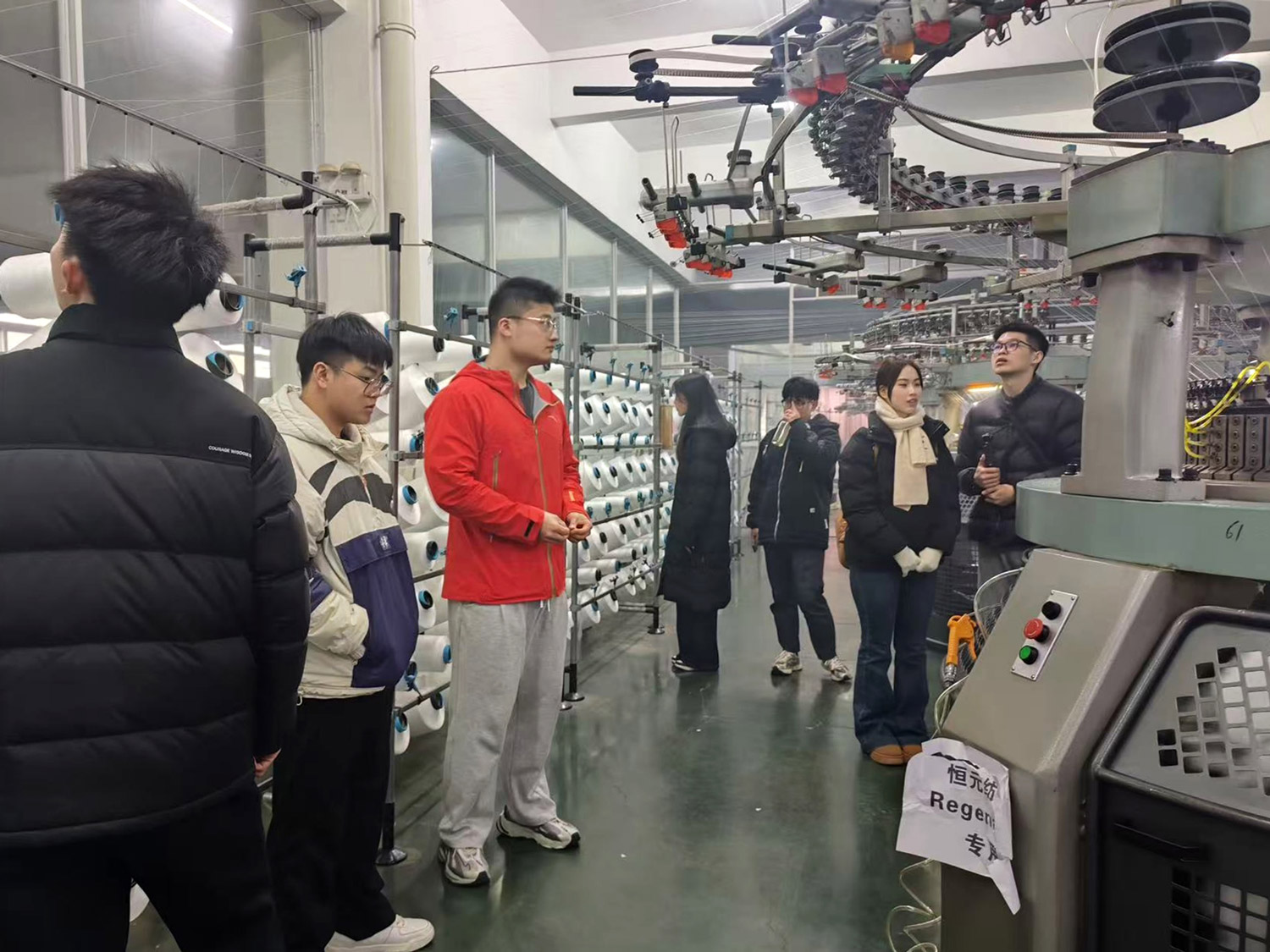
Swinburne Sarawak alumnus Pau Nian Ong (second right) and student Morvin Siaw (right) visit a textile factory.
By working closely with top multinational corporations, students gain firsthand experience in industry trends, cross-border business operations and global market dynamics, equipping them with the competencies needed to excel in the digital economy.
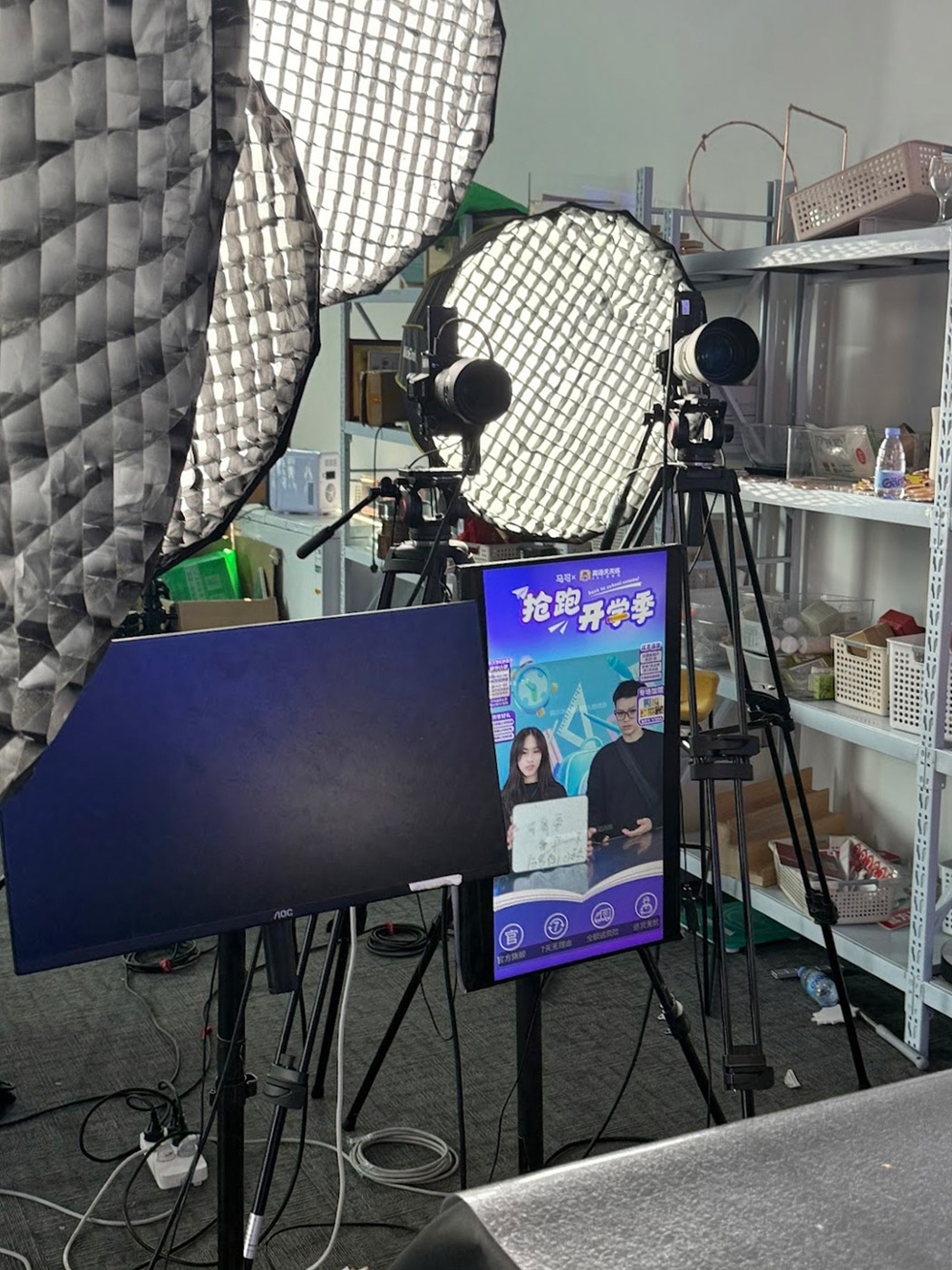
Swinburne Sarawak alumnus Pau Nian Ong (on screen, left) and student Morvin Siaw (on screen, right) conduct a livestream for online sales.
The success of this program has laid the foundation for further collaboration between Swinburne Sarawak and global industry leaders. Plans are underway to expand WIL opportunities, including placements in China’s thriving e-commerce sector, AI research labs and cross-border logistics companies, ensuring students receive a well-rounded industry education that complements their academic learning.
Beyond WIL, Swinburne Sarawak and ZYU are actively fostering an entrepreneurial ecosystem that empowers students to launch and scale their business ideas. One of the most exciting developments under this collaboration is the cross-border startup and product commercialisation initiative.
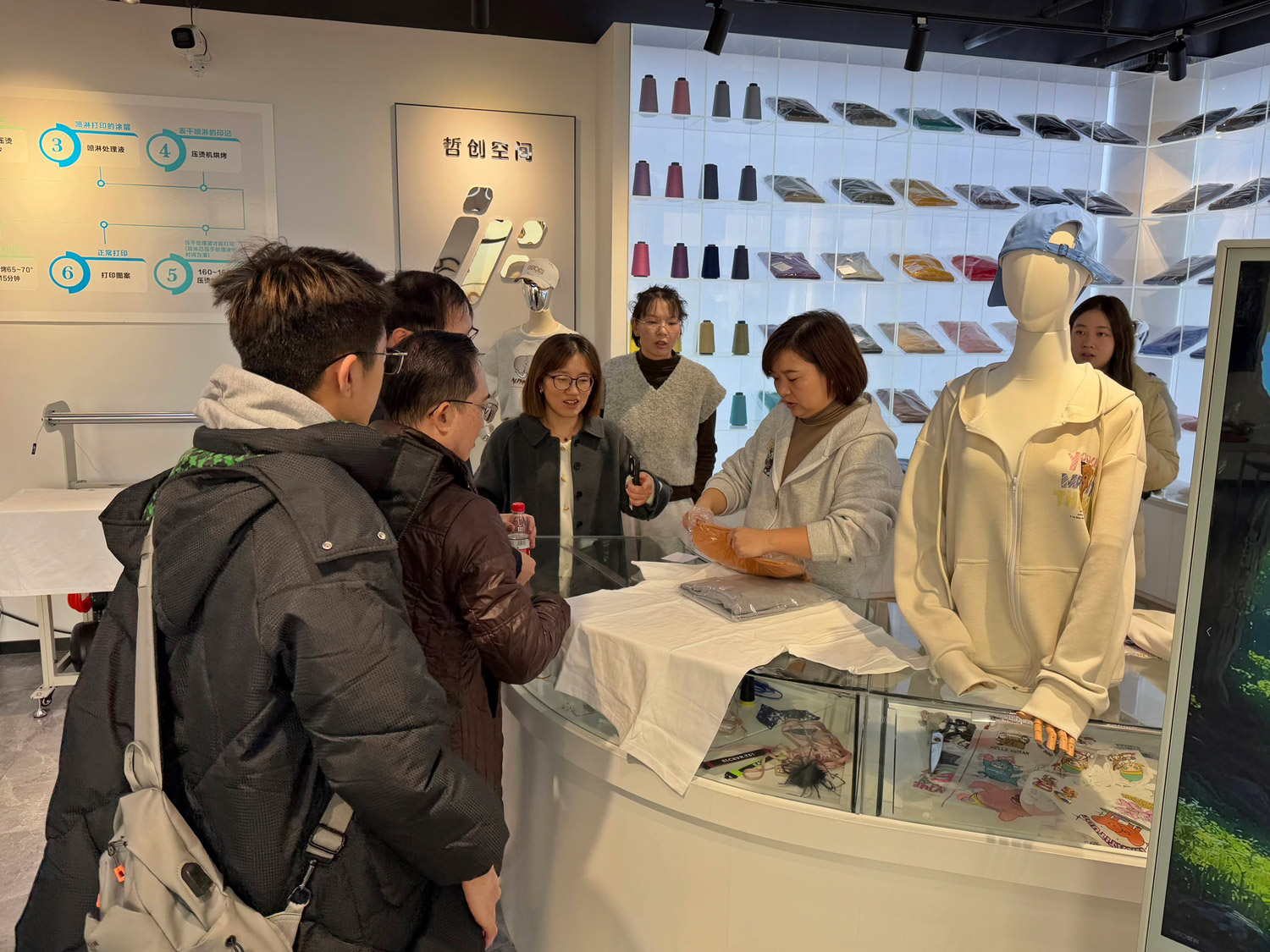
Professor Brian Wong Kee Mun (second left), Dean of Swinburne Sarawak’s Faculty of Business, Design and Arts, working with student startups at ZYU for cross-border product commercialisation.
In 2025, Swinburne Sarawak’s entrepreneurship students will collaborate with ZYU startups to validate and introduce their products into the Southeast Asian market. These products – ranging from digital solutions to consumer goods – will undergo rigorous market testing, providing real-time feedback and insights that help refine business models for cross-border expansion.
Simultaneously, students from Swinburne Sarawak will leverage China’s booming e-commerce platforms, utilising AI-driven shopping experiences and live-streaming commerce to market and sell Sarawakian products in China.
This initiative represents a strategic move to integrate academic research with commercial opportunities. By exposing students to real-world market conditions, the partnership equips them with essential skills in international trade, product development and digital commerce, ensuring they are well-prepared to lead the next wave of global entrepreneurship.
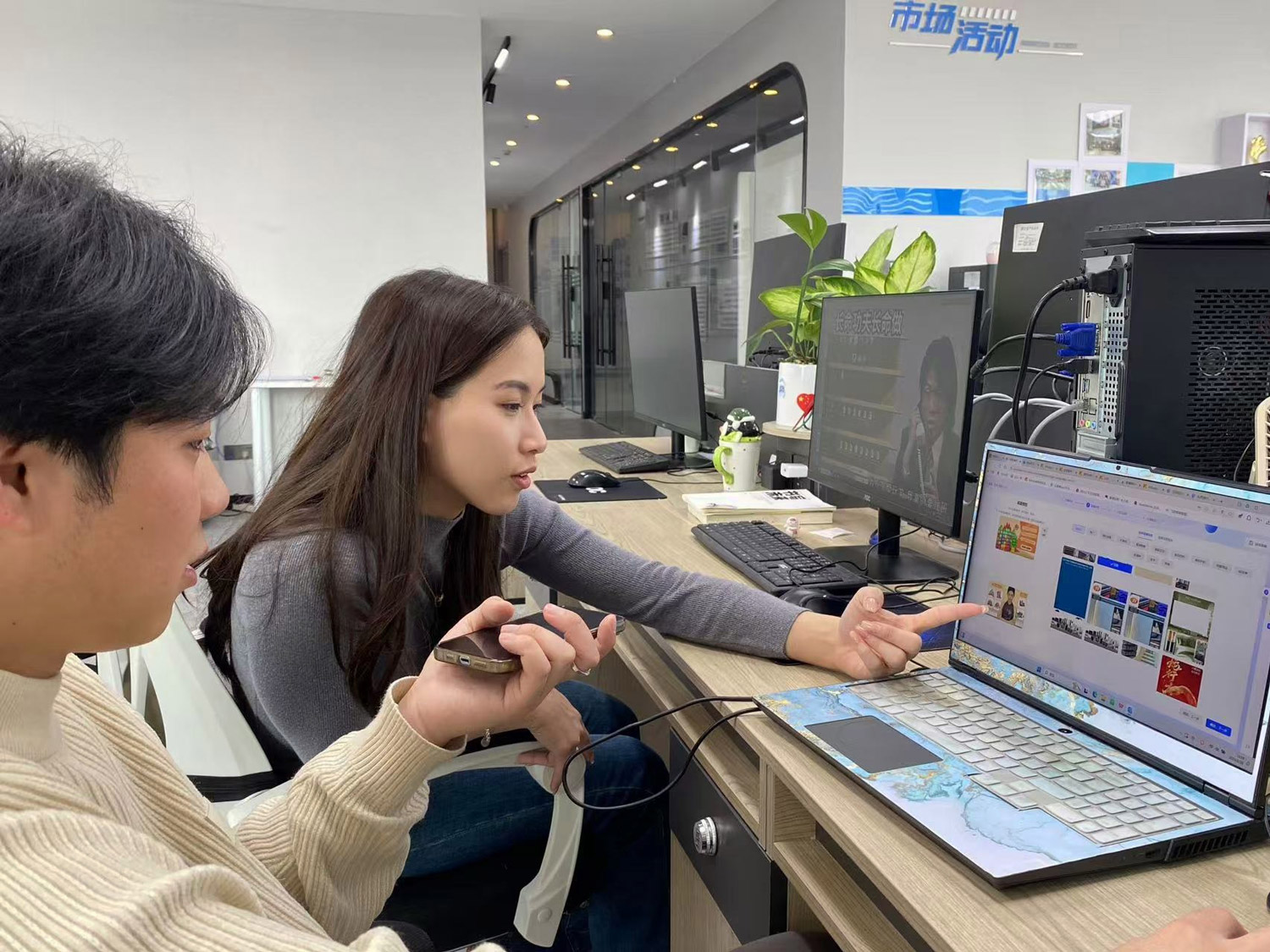
Swinburne Sarawak alumnus Pau Nian Ong (right) explores AI livestream at Alibaba Headquarters.
Complementing WIL and entrepreneurial activities, Swinburne Sarawak and ZYU have also formalised their commitment to research collaboration by signing a Memorandum of Understanding (MoU) on 26 February 2025. The MoU between the two institutions paves the way for joint research projects, industry-based studies and grant applications in digital trade, AI-driven business models and international market expansion strategies.
This MoU strengthens the foundation for future research initiatives, including exploring new business models for cross-border e-commerce, AI-driven customer engagement strategies and the integration of digital platforms into global supply chains.
These research endeavours directly align with Sarawak’s Post Covid-19 Development Strategy (PCDS) 2030 and the Sarawak Digital Economy Blueprint 2030, reinforcing the region’s goal of becoming a digital and innovation-driven economy.
The partnership between Swinburne Sarawak and ZYU exemplifies how academia and industry can work hand in hand to drive innovation, entrepreneurship and global engagement. By combining WIL, startup commercialisation and research-driven collaboration, the two institutions have set a new benchmark for cross-border educational partnerships.
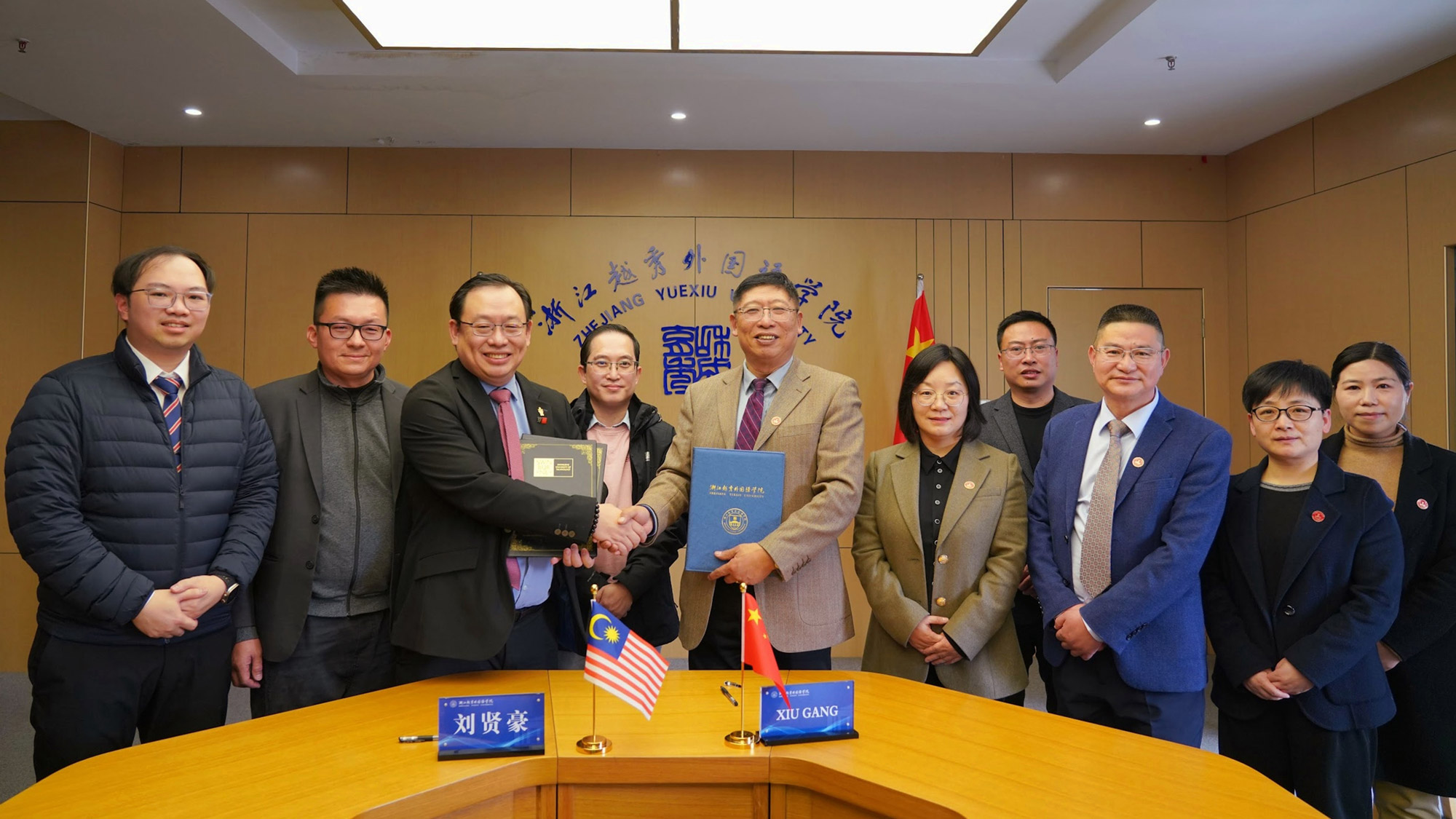
Swinburne Sarawak Pro Vice-Chancellor and Chief Executive Officer Ir Professor Lau Hieng Ho (third from left) and ZYU President Professor Xiu Gang (fifth left) exchanging the signed MoU, marking a new partnership between Swinburne Sarawak and ZYU.
As this collaboration continues to evolve, the impact extends beyond student experiences. It is shaping the future of digital trade, redefining industry engagement in academia and fostering a new generation of globally competent entrepreneurs.
This initiative stands as a testament to how universities can serve as catalysts for economic transformation, bridging education and industry to create meaningful, real-world impact.
For more information on Swinburne Sarawak, visit its website, Facebook page (@swinburnesarawak), Instagram page (@swinburnesarawak), X page (@Swinburne_Swk), TikTok page (@swinburnesarawak) or YouTube channel (Swinburne Sarawak).


